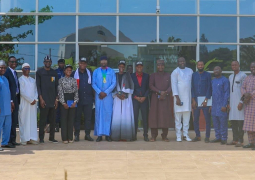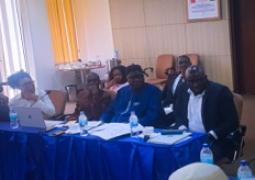
“In the rural areas, the problem may have partly stemmed from the inadequate decentralisation of the immigration and birth registration services as most people cannot afford the fees and the incidental costs of having to travel to the Greater Banjul Area or their Regional capitals to acquire national documents,” according to the report.
Section 26 of the 1997 Constitution guarantees the right of every Gambian with full age (18 years and above) and capacity to take part in the conduct of public affairs, including registering for a voter’s card to vote at genuine periodic elections.
The commission said in terms of access, some registration centres were not disability, elderly, and pregnant women friendly.
NHRC report added: “Although persons with disability are assisted during registration and given priority, there were no sign language interpreters present in any of the centres visited, and documentation was not made available in braille form for the visually impaired.”
The Commission observed that the number of registered youths was minimal in some registration centres visited due to the standard definition of youths applied (persons 18-20 years of age) by IEC, which excludes persons aged from 21 to 35 years per the national definition.
The objective of the mission according to them was to monitor the voter registration process to ensure that registration procedures were compliant with the guidelines set out by the IEC and were in accordance with human rights principles; and to collect evidence-based data and report on any form of human rights violation that may occur during the registration process, to safeguard or monitor the right of all eligible Gambians to participate in the upcoming elections, and to prepare and present to the IEC and other relevant stakeholders, the findings of the monitoring, including any challenges in the registration of voters and recommendations to address the issues observed during the monitoring visits. Source: Foroyaa





